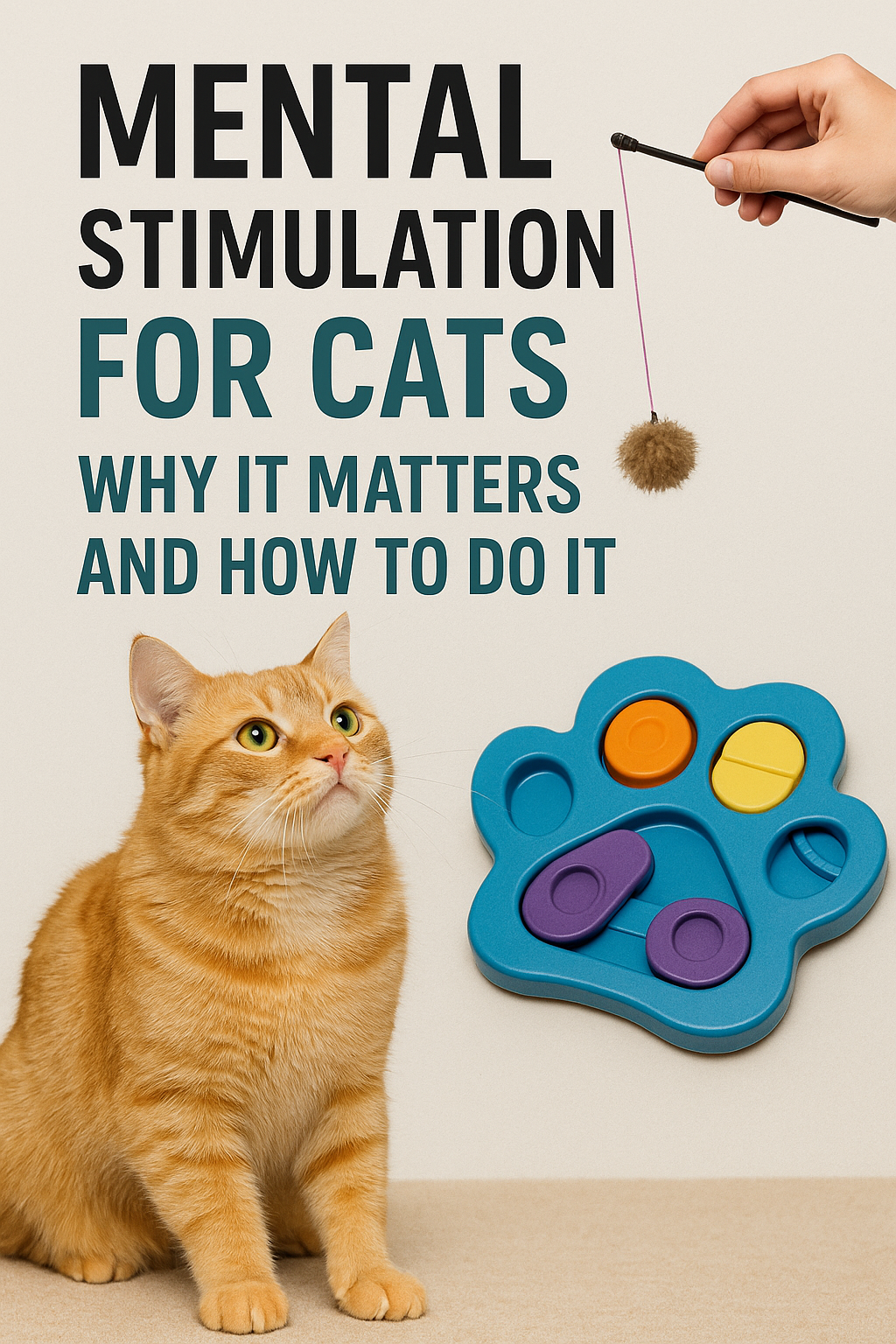Mental Stimulation for Cats
Admin
ADMIN

Mental Stimulation for Cats: Why It Matters and How to Do It
by Tenjiku Naturals | August 10, 2025
Why Mental Stimulation is Important for Cats
Cats are naturally intelligent, curious, and playful creatures. While they may seem content napping in a sunny spot, they also need regular mental enrichment to stay happy and healthy. Without mental stimulation, cats can become bored, anxious, or even develop destructive behaviors like scratching furniture or over-grooming.
In the wild, cats spend a significant portion of their day hunting, exploring, and problem-solving. Indoor cats miss out on many of these natural activities, so it’s up to us to provide mental challenges that mimic their instincts.

Benefits of Mental Stimulation
Prevents Boredom: Keeps your cat engaged and active.
Improves Behavior: Reduces unwanted habits like scratching or nighttime zoomies.
Encourages Exercise: Physical play often comes with mental challenges.
Boosts Confidence: Solving puzzles or catching toys makes your cat feel accomplished.
Strengthens Your Bond: Interactive play deepens trust between you and your cat.
Fun Ways to Provide Mental Stimulation
1. Interactive Toys
Choose toys that make your cat think, such as puzzle feeders, treat-dispensing balls, or toys that move unpredictably. Rotate toys weekly so they remain exciting.
2. Food Puzzles
Instead of feeding from a regular bowl, use a puzzle feeder or hide small amounts of food around the house to encourage your cat’s hunting instincts.
3. Clicker Training
Yes, cats can be trained! Use a clicker and treats to teach your cat tricks like high-five, sit, or jump through a hoop. Training is excellent mental exercise.
4. Bird Watching Stations
Set up a cat perch near a window with a view of trees or a bird feeder. The sights, sounds, and smells will keep your cat mentally alert.
5. Hide and Seek
Hide treats, toys, or even yourself and let your cat “hunt” for the prize. This mimics their natural stalking behavior.
6. Cat Tunnels and Climbing Towers
Vertical space, tunnels, and hideouts create a stimulating environment where your cat can climb, jump, and explore.
Signs Your Cat Needs More Mental Stimulation
Over-grooming or obsessive licking
Unusual aggression or irritability
Scratching furniture more than usual
Overeating or loss of appetite
Sleeping excessively without play breaks
Final Thoughts
Mental stimulation isn’t just about keeping your cat busy—it’s about fulfilling their natural instincts and helping them lead a happier, healthier life. Whether you use puzzle toys, training sessions, or creative playtime, your cat will thank you with better behavior and a stronger bond.
Looking for eco-friendly cat care solutions? Try Kittyp Pune Wood Cat Litter – natural, safe, and kind to both your cat and the planet.
Frequently Asked Questions
How much mental stimulation does a cat need each day?
Most cats benefit from at least 20–30 minutes of dedicated playtime each day. This can be split into shorter sessions throughout the day to mimic natural hunting patterns.
Can older cats benefit from mental stimulation?
Absolutely. Senior cats may move slower, but they still enjoy problem-solving games, gentle play, and exploration. Mental activity can help keep their minds sharp and spirits high.
Do indoor cats need more mental stimulation than outdoor cats?
Yes. Outdoor cats naturally encounter sights, smells, and challenges every day. Indoor cats rely on their owners to provide enrichment that mimics these experiences.
What toys are best for mental stimulation?
Puzzle feeders, treat-dispensing toys, moving toys, and interactive wands are all excellent options. Rotate toys regularly so your cat stays interested.
Can training my cat provide mental stimulation?
Yes. Training your cat to perform tricks or respond to commands is a fantastic form of mental enrichment and helps strengthen your bond.
Comments (0)
Be the first to comment!